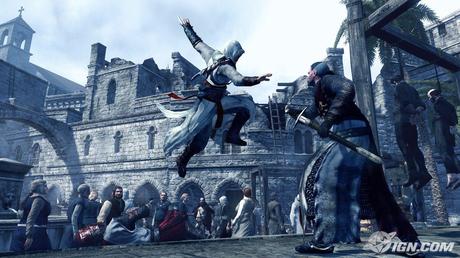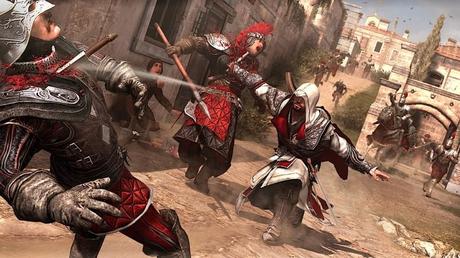I’m a big fan of the Assassin’s Creed games, they’re top notch murder simulators. The premise behind them is that the memories of our ancestors are encoded into our DNA which can be read through a special machine; allowing us to relive their lives. The main character’s ancestors were an awfully violent bunch, most of them being part of the guild of assassins who fight injustice. Kind of like Batman, only without the rule about not killing people.

They also don’t put on silly voices
The 6th game in the series is due to be released later this year. With my hard drive filling up, I wondered if I had enough space for this latest installment. This got me thinking: would our genome suffer from the same problem? How many memories could our DNA store?
The 5 games so far contain 55 GB of data. Fortunately DNA is very small, so loads can be crammed into a small space. A single gram of DNA can contain 2.2 petabytes of data; which is an order of magnitude bigger than the biggest hard drives you can buy today (which are noticeably heavier than a gram). For this reason many people are researching whether DNA-based hard drives are a possibility, and the results are quite promising.
However our genome is also quite small. Our cells don’t have of a gram of DNA in them, they actually have 6 picograms; or 6 trillionths of a gram (no, I’m not going to convert that to imperial for you). This adds up to 2.5 GB of data, which is far from the 55GB needed to store the memories of our assassin ancestors in our DNA.
Whilst researching these facts I stumbled on an old Q & A on the human genome project website, which talked about how difficult it would be to store this wealth of data. Now a 2.5 GB hard drive would be laughed at. How times have changed. Yet this paltry amount of data contains all the genes needed to create you; the most complex thing in the known universe. 2.5 GB of data stored on 3 billion base pairs in 6 picograms of DNA codes for an entire human being.
As amazing as this is, it sadly means we won’t be able to relive our murderous ancestors’ lives.

Which is a real shame

